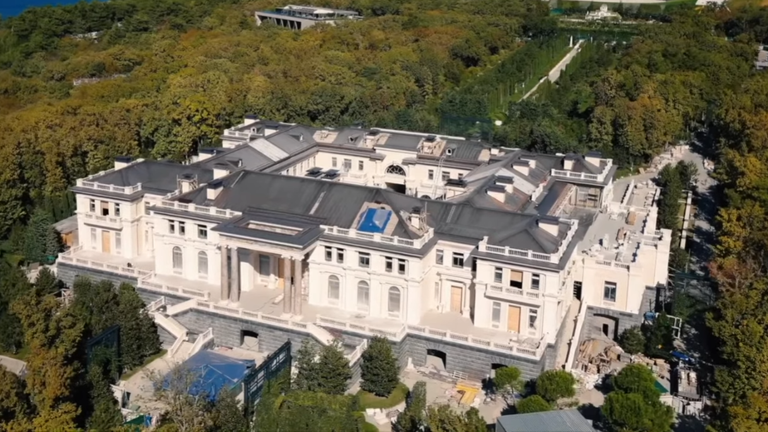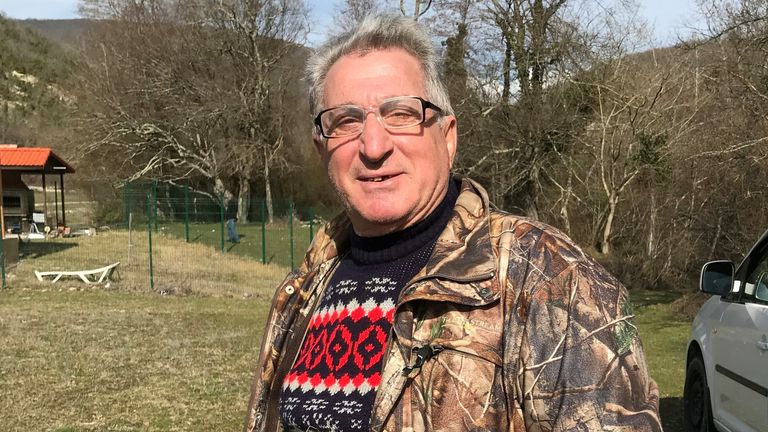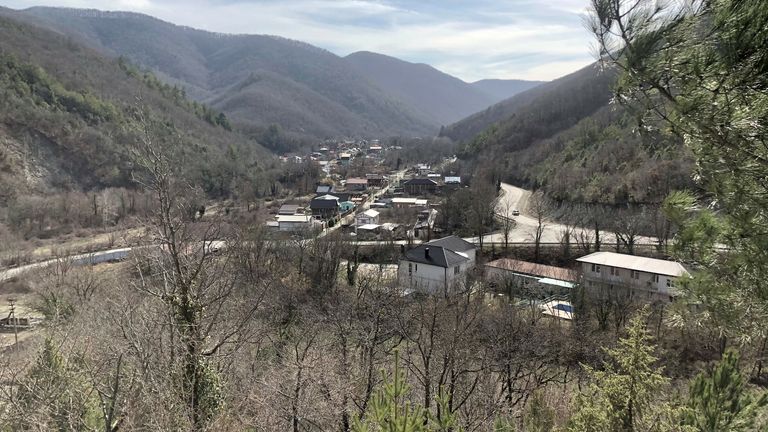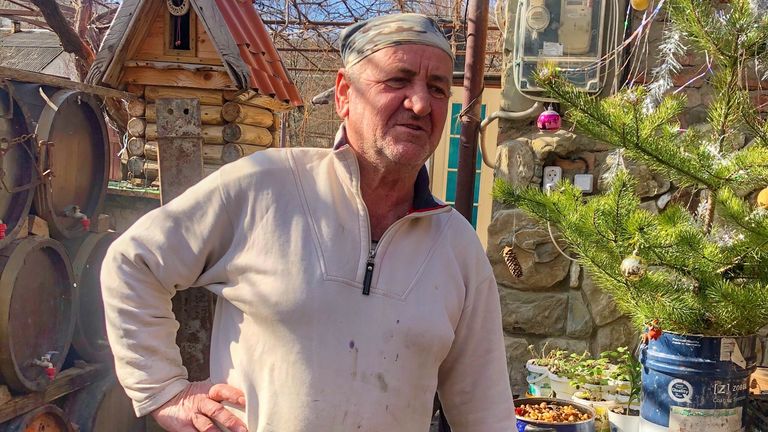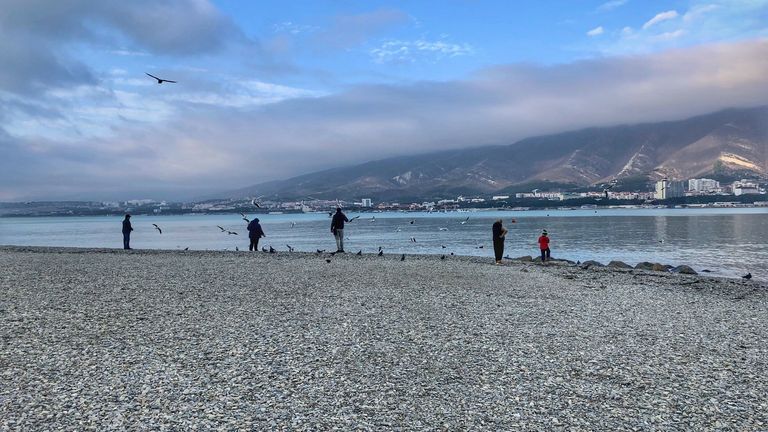Home » World News »
Russia: How village near ‘Putin’s Palace’ really feels about Alexei Navalny exposé
The huge pile near Gelendzhik on Russia’s Black Sea Coast which Alexei Navalny calls “Putin’s Palace” has a way of coming back to haunt the Russian president.
In 2012, Boris Nemtsov, a former prime minister and fierce Putin critic, published a report detailing the wealth and luxurious properties the president had allegedly accumulated in his then 12 years in power. Listed there was the Gelendzhik palace. The report included photographs of lavish interiors. They would resurface in Navalny’s investigation nine years later.
“In a country where more than 20 million people barely make ends meet, the luxurious life of the president is a blatant and cynical challenge to society,” Nemtsov wrote then. Three years later, he was murdered, shot within spitting distance of the Kremlin walls in a hit job which the Russian state has always denied having any involvement with.
Nemtsov of course, had nothing like the 112 million eyeballs on his report that “Putin’s Palace” has had in just three weeks. Navalny has mastered a humorous, bruising YouTube persona which makes his criticism of Russia’s kleptocracy far more potent than Nemtsov’s ever was. It is a digital-savvy reach that the Kremlin craves and which its old-school spin doctors cannot begin to compete with.
But they are trying. The Kremlin-linked channel Mash managed to “secure access” to the site, a supposed scoop intended to show that the palace was still under construction (Navalny had always claimed that the interiors were ripped out and building re-started because of mould and design flaws a few years ago).
Then one of Vladimir Putin’s oldest pals Arkady Rotenberg told Mash the palace belonged to him and that he planned to turn it into a hotel. Shortly after Mash’s deputy editor resigned over the videos, writing on Telegram that the decision-making from way above editorial level was akin to Soviet times.
The state’s info-backlash continued. Russian state TV did a report on the property in Germany where Navalny had spent some of his time in recovery, suggesting it was way beyond his means and claiming that Navalny could not have produced his film alone.
“This is a fake movie about a fake palace where Navalny was invited just to do the voiceover. From the beginning it was scrupulously made by the secret services of three NATO countries, the USA, Great Britain and Germany,” thundered Dmitry Kiselev, Russia’s chief propagandist on his weekly news show.
That message resonates too. According to a recent poll from Russia’s independent Levada centre, one in four Russians have watched Navalny’s exposé but a third of those don’t believe it. It found 77% of those who’d watched the film or knew of its contents said it did not change their attitude towards Vladimir Putin.
“This is a fake, a paste-up by Navalny which was well-paid for,” says Pavel Chatalbash, a pensioner in Praskoveevka, which is the nearest village to the palace.
Like so many pensioners he is a Putin loyalist, nevermind the stark contrast between the president’s supposed wealth and meagre pensions.
“Putin should have several residences, since he is the president of the country. I don’t judge him for that. Let’s make Putin the tsar of Russia and then there will be no more questions!”
Residents of Praskoveevka we spoke to seemed largely pleased at the employment the gigantic construction site next door has given them and the surrounding region. “Everyone works here, everyone is happy, not just in the village, all over the Krasnodar region. Everything we have here is thanks to this,” one woman said.
Leonid Bolbat, who is the leader of the local Cossacks, is less enthusiastic. He regrets the fact he can no longer pick mushrooms in the forests he went to as a boy. Access to an entire mountain range is now blocked. He fears the villagers’ route to the sea will be too.
“If you stop the car near this border guard base they’ll come out straight away, ask who you are, and say you’ve got three seconds to leave the area. They’ve created a kind of military regime there,” he says.
Both men say they’d had a visit from intelligence agents after chatting with journalists the day before. It’s an oppressive degree of security if the property is just a hotel. A no-fly zone up above and an over-zealous border guard post next door. Two sets of journalists who’d got out to film near the border guard in the week we went were detained and their material wiped. Hardly worth it if you then have nothing to show of it.
The “Putin’s Palace” investigation clearly struck a nerve at the top. But Alexei Navalny is behind bars now for the foreseeable future and his life is in the hands of the state. In his position that is exceptionally dangerous. Look at what happened to him last summer. Look at Nemtsov.
Bolbat is unusually frank: “God grant that Navalny and his team come to power, things may get better.”
I ask him if he thinks that’s even possible. He says: “Anything can happen in life. I think it will be alright.”
Source: Read Full Article

